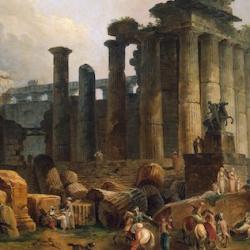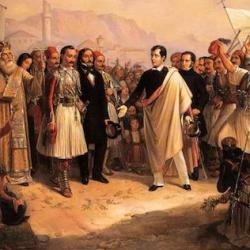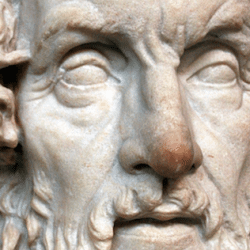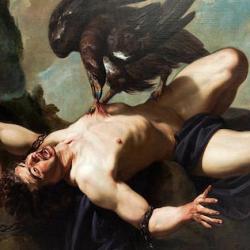In Histories II, Herodotus claims that Greeks borrowed the very name Dionysus from Egyptians, not to mention the phallic procession associated with that god: “it was Melampous who introduced the phallic procession, and from Melampous that the Greeks learnt the rites that they now perform. Melampous, in my view, was an able man who acquired the art of divination and brought into Greece, with little change, a number of things which he had learned in Egypt, and amongst them the worship of Dionysos. . . . Probably Melampous got his knowledge about Dionysos through Kadmos ofTyre and the people who came with him from Phoenicia to the country now called Boiotia. The names of nearly all the gods came to Greece from Egypt. I know from the enquiries I have made that they came from abroad, and it seems most likely that it was from Egypt, for the names of all the gods have been . . . known in Egypt from the beginning of time. . . . These practices . . . were borrowed by the Greeks from Egypt.”
Greek patriots like Plutarch didn’t like this at all, branding the “philobarbarous” Herodotus the “father of lies.” In his essay on the “malice of Herodotus,” Plutarch writes: “He says that the Greeks learnt about processions and national festivals from the Egyptians as well as the worship of the twelve gods; the very name of Dionysos, he says, was learnt from the Egyptians by Melampous, and he taught the rest of the Greeks; and the mysteries and secret rituals connected with Demeter were brought from Egypt by the daughters of Danaos … Nor is this the worst. He traces the ancestry of Herakles to Perseus and says Perseus, according to the Persian account, was an Assyrian; ‘and the chiefs of the Dorians’ he says, ‘would be established as pure-blooded Egyptians . . . ‘; not only is he anxious to establish an Egyptian and a Phoenician Herakles; he says that our own Herakles was born after the other two, and he wants to remove him from Greece and make a foreigner out of him. Yet of the learned men of old neither Homer nor Hesiod … ever mentioned an Egyptian or a Phoenician Herakles, but all of them knew only one, our own Herakles who is both Boiotian and Argive.”
Which is odd, because Plutarch elsewhere showed great admiration for Egyptian religion, which he thought was essentially identical with Greek religion. Martin Bernal (Black Athena, 1, 113) suggests that “there is . . . serious doubt as to whether Plutarch himself disbelieved Herodotos’ claims for the foreign origins of so much of Greek culture. It would seem more likely that Plutarch’s assault on Herodotos’ ‘barbarophilia’ was merely a tool to be used in his general attack upon him.”
Bernal uses both Herodotus and Plutarch as witnesses to the “Ancient Model” of Greek origins, the notion that Greek culture derived much of its inspiration from Egypt and the East.















